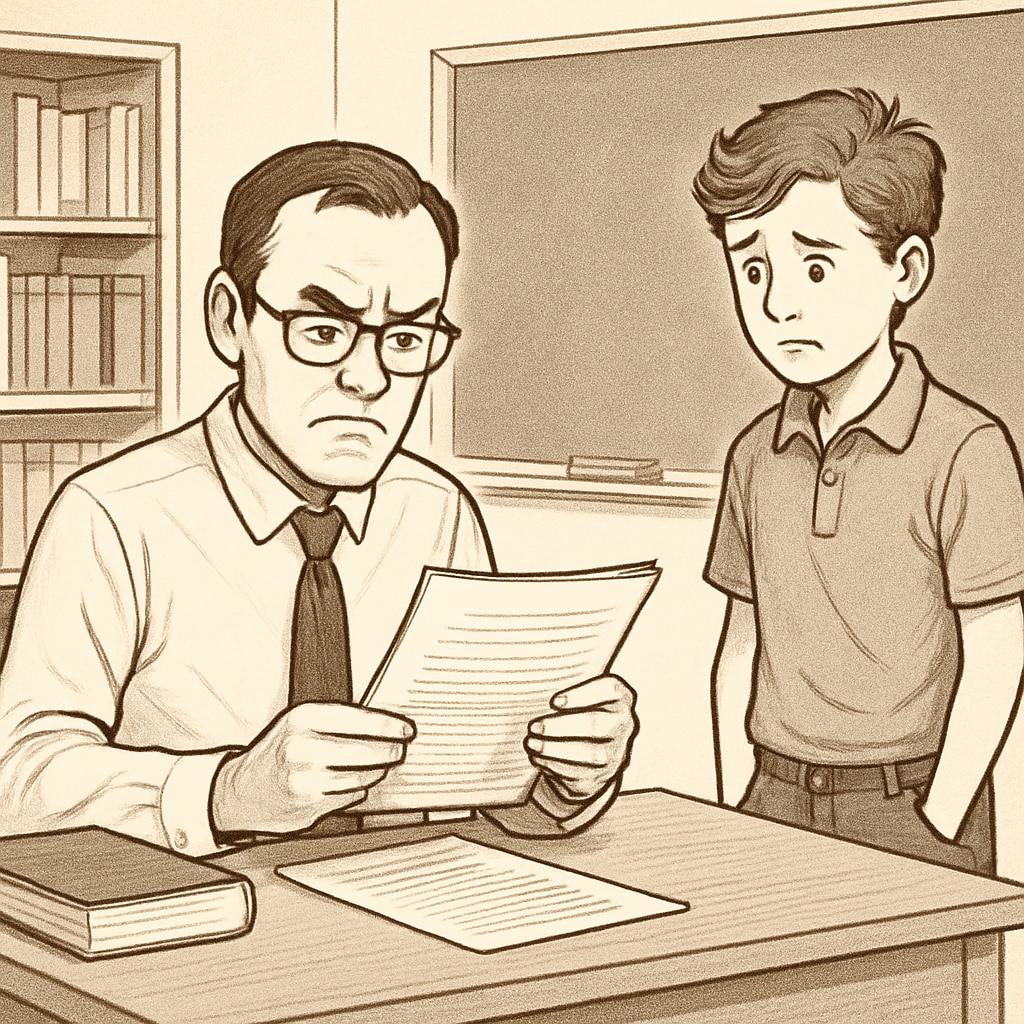Accusing a student of plagiarism is a serious matter, but when professors make unfounded accusations, the consequences can be devastating. Unsubstantiated claims of academic dishonesty often harm students’ confidence, damage their reputations, and create a culture of mistrust. This article explores the prevalence of such accusations in K-12 education, the underlying causes, and actionable solutions to prevent them.
Understanding Unfounded Plagiarism Accusations
Plagiarism, defined as the use of someone else’s work without proper attribution, is a legitimate concern in academic settings. However, not all accusations are based on solid evidence. In some cases, professors may rely on subjective judgment, overlook cultural or linguistic differences, or misinterpret a student’s work. These unfounded allegations often arise from:
- Implicit bias: Teachers may unconsciously doubt the abilities of certain students based on stereotypes.
- Inadequate training: Professors may lack the tools to differentiate between genuine plagiarism and coincidental similarities.
- Over-reliance on technology: Tools like plagiarism detection software sometimes flag false positives, leading to misguided accusations.

When such accusations are made without evidence, the impact on students can be profound. They may feel disheartened, doubting their own capabilities. Worse, it can create a hostile learning environment where creativity and critical thinking are stifled.
The Impact of Unsubstantiated Claims
The effect of unfounded plagiarism accusations extends beyond the classroom. For students, the immediate consequences include embarrassment, stress, and a loss of trust in their educators. Over time, these experiences can lead to:
- Decreased confidence: Students may second-guess their abilities, leading to reduced academic performance.
- Hindered creativity: Fear of being accused may discourage students from expressing original ideas.
- Reputational damage: Even baseless accusations can leave a lasting stain on a student’s academic record.
In addition to harming students, such accusations tarnish the credibility of educators and institutions. They signal a lack of due diligence and fairness, which can erode the trust between students and teachers.

Fostering a Culture of Fairness and Trust
To address the issue of unfounded plagiarism accusations, educators and institutions must take proactive steps. The following strategies can help foster a more supportive and fair academic environment:
1. Establish Clear Guidelines
Students should be educated about what constitutes plagiarism and how to avoid it. Providing clear examples and resources, such as citation guides, can empower students to maintain academic integrity.
2. Train Educators
Professors should receive training on how to identify plagiarism accurately, including the limitations of detection tools. They should also be encouraged to consider cultural and linguistic factors that may influence a student’s writing style.
3. Promote Open Communication
When concerns about plagiarism arise, educators should engage in open dialogue with students. Asking questions and understanding the student’s perspective can help clarify misunderstandings before accusations are made.
4. Implement a Review Process
Institutions should establish a system for reviewing plagiarism accusations. This ensures that claims are supported by evidence and that students have an opportunity to defend themselves.
These steps can help create an environment where trust and mutual respect thrive, ultimately enhancing the learning experience for all participants.
Conclusion: Building a Foundation of Integrity
Unfounded plagiarism accusations undermine the educational mission of fostering growth, curiosity, and integrity. By addressing the root causes and implementing fair practices, educators can build a foundation of trust and ensure that academic integrity is upheld without compromising student well-being.
For further reading on plagiarism and academic integrity, consider exploring resources like the Wikipedia page on Plagiarism or this comprehensive overview on Britannica.
In the end, the goal of education should be to inspire and guide students, not to penalize them unfairly. By fostering understanding and trust, we can create a system that benefits everyone involved.


